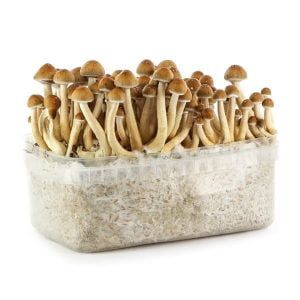The Legalization of Psychedelic Magic Mushrooms in the USA: A Comprehensive Overview
The legalization of psychedelic magic mushrooms in the United States marks a significant shift in both drug policy and mental health treatment. As scientific research uncovers the therapeutic potential of psilocybin, the active compound in these mushrooms, states and municipalities are reconsidering their legal status. This article delves into the history, science, benefits, challenges, and future prospects of magic mushroom legalization in the USA.
Historical Context and Scientific Discovery (Best place to buy Magic mushroom)
Magic mushrooms have been used for millennia in various cultures for spiritual and medicinal purposes. Indigenous peoples in Central and South America, for instance, have long employed these fungi in religious ceremonies. The Western world’s scientific community first took notice in the mid-20th century when R. Gordon Wasson’s experiences with magic mushrooms were published in *Life* magazine in 1957.
The active compound in magic mushrooms, psilocybin, was isolated in 1958 by Swiss chemist Albert Hofmann, who also discovered LSD. Psilocybin interacts with serotonin receptors in the brain, particularly the 5-HT2A receptor, which leads to altered states of consciousness, perception, and cognition. Unlike other hallucinogens, psilocybin’s effects are relatively short-lived and are considered less prone to abuse, making it a candidate for therapeutic use.

The Road to Legalization
The path to legalization has been gradual but increasingly rapid in recent years. In 2020, Oregon became the first state to legalize psilocybin for therapeutic use. This groundbreaking move was followed by decriminalization measures in cities like Denver, Oakland, and Santa Cruz. These efforts for Best place to buy Magic mushroom were bolstered by growing public support, driven by increasing awareness of mental health issues and the limitations of current treatment options.
Several factors have influenced this shift. The opioid crisis has highlighted the need for alternative treatments for pain and addiction. At the same time, the success of marijuana legalization in many states has demonstrated the potential benefits of regulated markets for previously illegal substances. As more scientific evidence emerges supporting the efficacy of psilocybin in treating conditions like depression, PTSD, and addiction, the push for legalization gains further legitimacy.

Benefits of Legalization
The legalization of psilocybin mushrooms offers numerous potential benefits across various sectors:
- **Mental Health Treatment**: Psilocybin has shown promise in treating a range of mental health conditions. Clinical trials have demonstrated its effectiveness in alleviating symptoms of major depressive disorder, anxiety, and PTSD. In particular, psilocybin-assisted therapy can provide rapid and long-lasting relief for patients who do not respond to traditional treatments.
2. **Scientific Research**: Legalization facilitates more extensive and rigorous research into psilocybin. Researchers can explore its full therapeutic potential without the legal and logistical constraints of prohibition. This can lead to new insights into brain function and the development of novel treatments for mental health conditions.
- **Economic Opportunities**: The burgeoning psychedelic industry holds significant economic potential. This includes not only the cultivation and distribution of psilocybin mushrooms but also the provision of therapeutic services. The creation of a regulated market can generate jobs, tax revenue, and economic growth.
- **Criminal Justice Reform**: Decriminalization and legalization reduce the number of individuals incarcerated for non-violent drug offenses. This alleviates the strain on the criminal justice system and addresses issues of racial and social injustice, as drug laws have disproportionately affected marginalized communities.
- **Cultural and Spiritual Growth**: Beyond clinical settings, psilocybin has been used to enhance spiritual and personal growth. Legalization can foster a greater understanding and acceptance of these practices, promoting holistic well-being.

Challenges and Considerations
Despite the potential benefits, the path to widespread legalization is fraught with challenges:
- **Regulatory Frameworks**: Establishing robust regulatory frameworks is essential to ensure the safe and effective use of psilocybin. This includes setting standards for dosage, administration, and professional training for therapists. Regulatory bodies must balance accessibility with the need to prevent misuse.
- **Public Education**: Comprehensive public education campaigns are necessary to inform people about the safe use of psilocybin and to combat misinformation. Educating the public about the potential risks and benefits, as well as the proper contexts for use, is crucial.
- **Psychological Risks**: While psilocybin is generally considered safe, it is not without risks. Unsupervised or inappropriate use can lead to adverse psychological reactions, including anxiety, paranoia, and psychosis. Ensuring that psilocybin is used in controlled, therapeutic settings is vital to minimizing these risks.
- **Social Equity**: Ensuring that the benefits of legalization are equitably distributed is a significant challenge. Policymakers must address the historical and ongoing injustices faced by marginalized communities due to drug laws. This includes providing opportunities for these communities to participate in the emerging industry.

The Future of Psilocybin Legalization
The future of psilocybin legalization in the United States appears promising. As more research supports its efficacy and safety, and as public opinion continues to shift, it is likely that more states will follow Oregon’s lead. The potential for psilocybin to revolutionize mental health treatment is immense, offering hope for those struggling with conditions that have proven resistant to conventional therapies.
Moreover, the legalization movement is part of a broader cultural shift towards recognizing and embracing the therapeutic potential of . This shift is not only about changing drug policies but also about transforming societal attitudes towards mental health and well-being. By integrating psilocybin into the medical and therapeutic landscape, we can develop more compassionate and effective approaches to mental health care.
Conclusion
The legalization of psychedelic magic mushrooms in the USA represents a significant development in drug policy and mental health treatment. Grounded in a rich history and supported by compelling scientific evidence, the movement towards legalization offers numerous benefits, from improved mental health outcomes to economic opportunities and criminal justice reform. However, careful regulation, public education, and a commitment to social equity are essential to realizing the full potential of psilocybin Magic Mushroom For sale legalization.
As we navigate this transformative period, it is crucial to approach psilocybin with both optimism and caution. By doing so, we can harness its potential to enhance individual and societal well-being, paving the way for a new era in mental health and holistic care.

